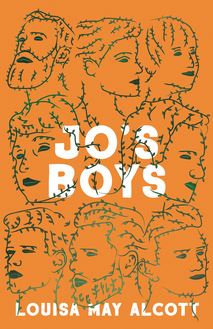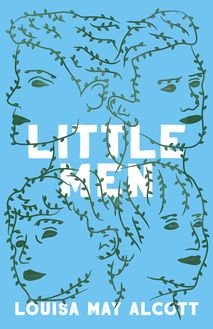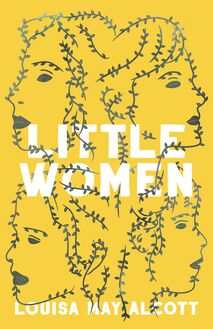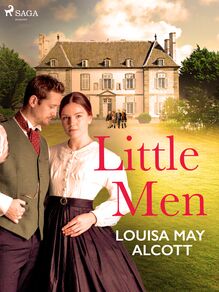-
 Univers
Univers
-
 Ebooks
Ebooks
-
 Livres audio
Livres audio
-
 Presse
Presse
-
 Podcasts
Podcasts
-
 BD
BD
-
 Documents
Documents
-
- Cours
- Révisions
- Ressources pédagogiques
- Sciences de l’éducation
- Manuels scolaires
- Langues
- Travaux de classe
- Annales de BEP
- Etudes supérieures
- Maternelle et primaire
- Fiches de lecture
- Orientation scolaire
- Méthodologie
- Corrigés de devoir
- Annales d’examens et concours
- Annales du bac
- Annales du brevet
- Rapports de stage
La lecture à portée de main
Vous pourrez modifier la taille du texte de cet ouvrage
Découvre YouScribe en t'inscrivant gratuitement
Je m'inscrisDécouvre YouScribe en t'inscrivant gratuitement
Je m'inscrisEn savoir plus
Vous pourrez modifier la taille du texte de cet ouvrage
En savoir plus

Description
Sujets
Informations
| Publié par | Read Books Ltd. |
| Date de parution | 11 mai 2015 |
| Nombre de lectures | 0 |
| EAN13 | 9781473372597 |
| Langue | English |
| Poids de l'ouvrage | 1 Mo |
Informations légales : prix de location à la page 0,0500€. Cette information est donnée uniquement à titre indicatif conformément à la législation en vigueur.
Extrait
LITTLE MEN
LIFE AT PLUMFIELD WITH JO'S BOYS
By
LOUISA MAY ALCOTT
First published in 1871
This edition published by Read Books Ltd. Copyright © 2019 Read Books Ltd. This book is copyright and may not be
reproduced or copied in any way without
the express permission of the publisher in writing
British Library Cataloguing-in-Publication Data
A catalogue record for this book is available from the British Library
Contents
Louisa May Alcott
NAT
THE BOYS
SUNDAY
STEPPING-STONES
PATTYPANS
A FIRE BRAND
NAUGHTY NAN
PRANKS AND PLAYS
DAISY'S BALL
HOME AGAIN
UNCLE TEDDY
HUCKLEBERRIES
GOLDILOCKS
DAMON AND PYTHIAS
IN THE WILLOW
TAMING THE COLT
COMPOSITION DAY
CROPS
JOHN BROOKE
ROUND THE FIRE
THANKSGIVING
Louisa May Alcott
Louisa May Alcott was an American Novelist, best known for the classic Little Women (1868) and its sequels Little Men and Jo’s Boys. Alcott was born on 29 November, 1832 in Germantown, Pennsylvania, USA, and was raised by her transcendentalist parents. The family, despite their connections with the American intellectual elite, suffered severe financial hardship and Alcott frequently helped to support the household. In 1840, after several financial setbacks, most notably following the experimental school set up by Louisa May’s father, the family moved to a cottage along the Sudbury River in Massachusetts. In 1843, the family moved again to the Utopian Fruitlands Community , an agrarian commune, dedicated to natural living. They finally settled in a house they named Hillside in 1845. As a result of this peripatetic childhood, Alcott’s schooling was mainly received from her father, who was an incredibly strict disciplinarian, high thinker and advocate of plain living. This instilled a determination and strong work ethic in Alcott, who worked as a teacher, governess, seamstress and writer in her early years. As an adult, Alcott was a strong abolitionist and a feminist advocate, becoming the first woman to register to vote in Concord, in a school board election. During the civil war, Alcott worked as a nurse in the Union Hospital at Georgetown, D.C. She collected all her letters, often dryly humorous, in book entitled Hospital Sketches (1863); a work which brought Alcott critical acclaim. Following on from this success, Alcott wrote several novels under the pen name A. L. Barnard, most notably A Long Fatal Love Chase (1866) and A Modern Mephistopheles (1875). However, Little Women and its sequels were Alcott’s major successes; the first book dealt with the childhood of Meg, Jo, Beth and Amy; characters strongly based on Alcott’s childhood accompanied by her own three sisters. The sequel, Good Wives (1869) dealt with their progression into adulthood, whilst Little Men (1871) detailed Jo’s life at the school she founded alongside her husband. Jo’s Boys (1886) completed the ‘Family Saga’. The Character Jo was loosely based on Alcott’s own life, however unlike the heroine, Alcott never married, commenting that ‘I am more than half-persuaded that I am a man's soul put by some freak of nature into a woman's body ... because I have fallen in love with so many pretty girls and never once the least bit with any man.’ Alcott was firmly part of the Gilded Age , along with authors such as Elizabeth Stoddard and Rebecca Harding Davis, she addressed women’s issues in a modern and candid manner. Alcott continued to write until her death on 6 March, 1888. The cause of death is uncertain; she suffered chronic health problems, including vertigo and typhoid, the latter of which was treated with mercury. However recent analysis of her illnesses has suggested an autoimmune disease such as Lupus. She is buried in Sleepy Hollow Cemetery, Concord, Massachusetts, on a hillside known as Author’s Ridge.
TO FREDDY AND JOHNNY, THE LITTLE MEN TO WHOM SHE OWES SOME OF THE BEST AND HAPPIEST HOURS OF HER LIFE, THIS BOOK IS GRATEFULLY DEDICATED BY THEIR LOVING “AUNT WEEDY”
CHAPTER I
NAT
“Please, sir, is this Plumfield?” asked a ragged boy of the man who opened the great gate at which the omnibus left him.
“Yes. Who sent you?”
“Mr. Laurence. I have got a letter for the lady.”
“All right; go up to the house, and give it to her; she'll see to you, little chap.”
The man spoke pleasantly, and the boy went on, feeling much cheered by the words. Through the soft spring rain that fell on sprouting grass and budding trees, Nat saw a large square house before him, a hospitable-looking house, with an old-fashioned porch, wide steps, and lights shining in many windows. Neither curtains nor shutters hid the cheerful glimmer; and, pausing a moment before he rang, Nat saw many little shadows dancing on the walls, heard the pleasant hum of young voices, and felt that it was hardly possible that the light and warmth and comfort within could be for a homeless “little chap” like him.
“I hope the lady will see to me,” he thought, and gave a timid rap with the great bronze knocker, which was a jovial griffin's head.
A rosy-faced servant-maid opened the door, and smiled as she took the letter which he silently offered. She seemed used to receiving strange boys, for she pointed to a seat in the hall, and said, with a nod:
“Sit there and drip on the mat a bit, while I take this in to missis.”
Nat found plenty to amuse him while he waited, and stared about him curiously, enjoying the view, yet glad to do so unobserved in the dusky recess by the door.
The house seemed swarming with boys, who were beguiling the rainy twilight with all sorts of amusements. There were boys everywhere, “up-stairs and down-stairs and in the lady's chamber,” apparently, for various open doors showed pleasant groups of big boys, little boys, and middle-sized boys in all stages of evening relaxation, not to say effervescence. Two large rooms on the right were evidently schoolrooms, for desks, maps, blackboards, and books were scattered about. An open fire burned on the hearth, and several indolent lads lay on their backs before it, discussing a new cricket-ground, with such animation that their boots waved in the air. A tall youth was practising on the flute in one corner, quite undisturbed by the racket all about him. Two or three others were jumping over the desks, pausing, now and then, to get their breath and laugh at the droll sketches of a little wag who was caricaturing the whole household on a blackboard.
In the room on the left a long supper-table was seen, set forth with great pitchers of new milk, piles of brown and white bread, and perfect stacks of the shiny gingerbread so dear to boyish souls. A flavor of toast was in the air, also suggestions of baked apples, very tantalizing to one hungry little nose and stomach.
The hall, however, presented the most inviting prospect of all, for a brisk game of tag was going on in the upper entry. One landing was devoted to marbles, the other to checkers, while the stairs were occupied by a boy reading, a girl singing a lullaby to her doll, two puppies, a kitten, and a constant succession of small boys sliding down the banisters, to the great detriment of their clothes and danger to their limbs.
So absorbed did Nat become in this exciting race, that he ventured farther and farther out of his corner; and when one very lively boy came down so swiftly that he could not stop himself, but fell off the banisters, with a crash that would have broken any head but one rendered nearly as hard as a cannon-ball by eleven years of constant bumping, Nat forgot himself, and ran up to the fallen rider, expecting to find him half-dead. The boy, however, only winked rapidly for a second, then lay calmly looking up at the new face with a surprised, “Hullo!”
“Hullo!” returned Nat, not knowing what else to say, and thinking that form of reply both brief and easy.
“Are you a new boy?” asked the recumbent youth, without stirring.
“Don't know yet.”
“What's your name?”
“Nat Blake.”
“Mine's Tommy Bangs. Come up and have a go, will you?” and Tommy got upon his legs like one suddenly remembering the duties of hospitality.
“Guess I won't, till I see whether I'm going to stay or not,” returned Nat, feeling the desire to stay increase every moment.
“I say, Demi, here's a new one. Come and see to him;” and the lively Thomas returned to his sport with unabated relish.
At his call, the boy reading on the stairs looked up with a pair of big brown eyes, and after an instant's pause, as if a little shy, he put the book under his arm, and came soberly down to greet the new-comer, who found something very attractive in the pleasant face of this slender, mild-eyed boy.
“Have you seen Aunt Jo?” he asked, as if that was some sort of important ceremony.
“I haven't seen anybody yet but you boys; I'm waiting,” answered Nat.
“Did Uncle Laurie send you?” proceeded Demi, politely, but gravely.
“Mr. Laurence did.”
“He is Uncle Laurie; and he always sends nice boys.”
Nat looked gratified at the remark, and smiled, in a way that made his thin face very pleasant. He did not know what to say next, so the two stood staring at one another in friendly silence, till the little girl came up with her doll in her arms. She was very like Demi, only not so tall, and had a rounder, rosier face, and blue eyes.
“This is my sister, Daisy,” announced Demi, as if presenting a rare and precious creature.
The children nodded to one another; and the little girl's face dimpled with pleasure, as she said affably:
“I hope you'll stay. We have such good times here; don't we, Demi?”
“Of course, we do: that's what Aunt Jo has Plumfield for.”
“It seems a very nice place indeed,” observed Nat, feeling that he must respond to these amiable young persons.
“It's the nicest pl
-
 Univers
Univers
-
 Ebooks
Ebooks
-
 Livres audio
Livres audio
-
 Presse
Presse
-
 Podcasts
Podcasts
-
 BD
BD
-
 Documents
Documents
-
Jeunesse
-
Littérature
-
Ressources professionnelles
-
Santé et bien-être
-
Savoirs
-
Education
-
Loisirs et hobbies
-
Art, musique et cinéma
-
Actualité et débat de société
-
Jeunesse
-
Littérature
-
Ressources professionnelles
-
Santé et bien-être
-
Savoirs
-
Education
-
Loisirs et hobbies
-
Art, musique et cinéma
-
Actualité et débat de société
-
Actualités
-
Lifestyle
-
Presse jeunesse
-
Presse professionnelle
-
Pratique
-
Presse sportive
-
Presse internationale
-
Culture & Médias
-
Action et Aventures
-
Science-fiction et Fantasy
-
Société
-
Jeunesse
-
Littérature
-
Ressources professionnelles
-
Santé et bien-être
-
Savoirs
-
Education
-
Loisirs et hobbies
-
Art, musique et cinéma
-
Actualité et débat de société
- Cours
- Révisions
- Ressources pédagogiques
- Sciences de l’éducation
- Manuels scolaires
- Langues
- Travaux de classe
- Annales de BEP
- Etudes supérieures
- Maternelle et primaire
- Fiches de lecture
- Orientation scolaire
- Méthodologie
- Corrigés de devoir
- Annales d’examens et concours
- Annales du bac
- Annales du brevet
- Rapports de stage










